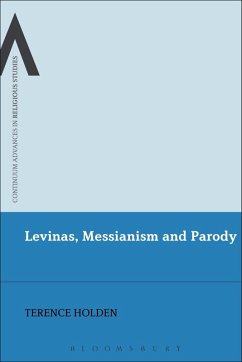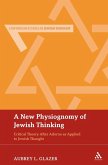There is no greater testament to Emmanuel Levinas' reputation as an enigmatic thinker than in his meditations on eschatology and its relevance for contemporary thought. Levinas has come to be seen as a principal representative in Continental philosophy - alongside the likes of Heidegger, Benjamin, Adorno and Zizek - of a certain philosophical messianism, differing from its religious counterpart in being formulated apparently without appeal to any dogmatic content. To date, however, Levinas' messianism has not received the same detailed attention as other aspects of his wide ranging ethical vision. Terence Holden attempts to redress this imbalance, tracing the evolution of the messianic idea across Levinas' career, emphasising the transformations or indeed displacements which this idea undergoes in taking on philosophical intelligibility. He suggests that, in order to crack the enigma which this idea represents, we must consider not only the Jewish tradition from which Levinas draws inspiration, but also Nietzsche, who ostensibly would represent the greatest rival to the messianic idea in the history of philosophy, with his notion of the 'parody' of messianism.
Bitte wählen Sie Ihr Anliegen aus.
Rechnungen
Retourenschein anfordern
Bestellstatus
Storno









